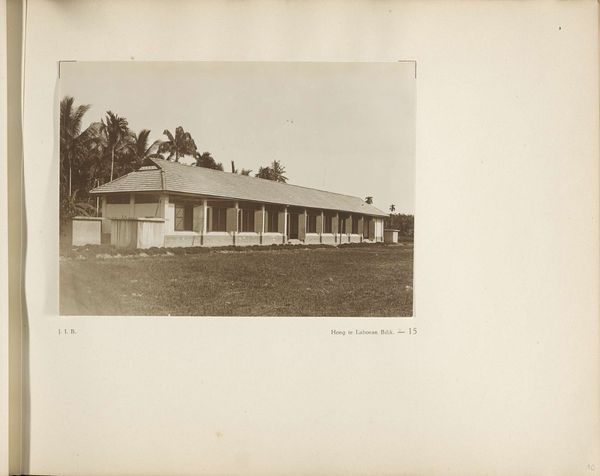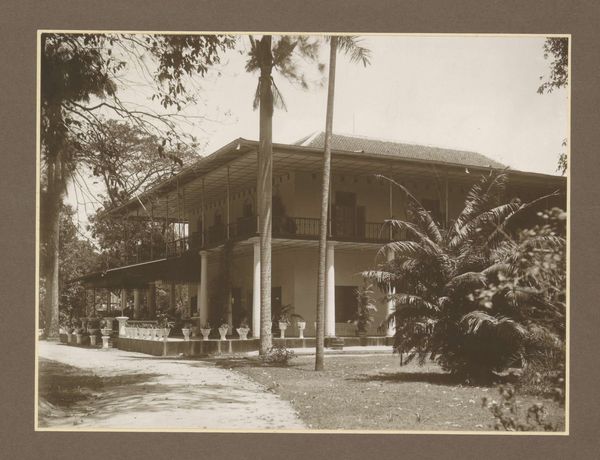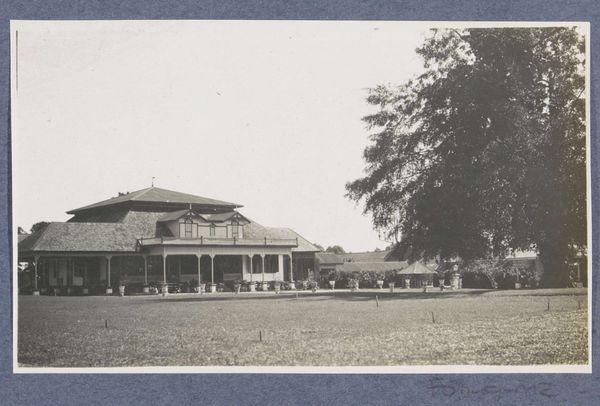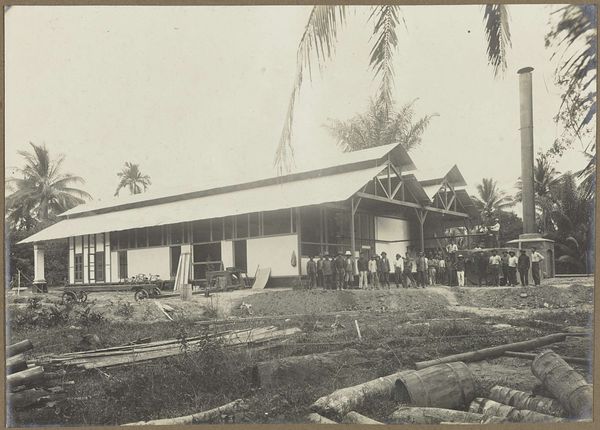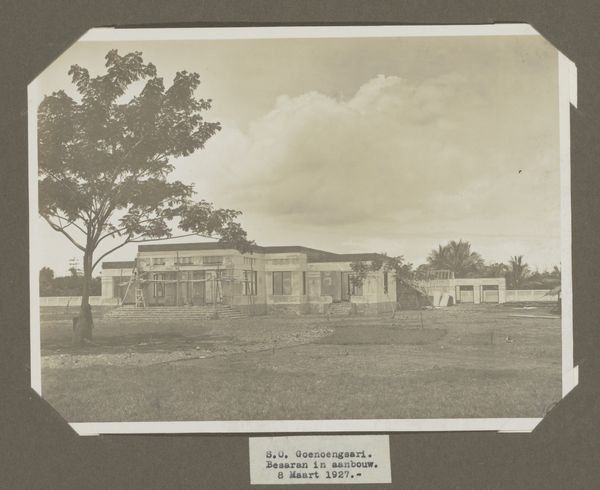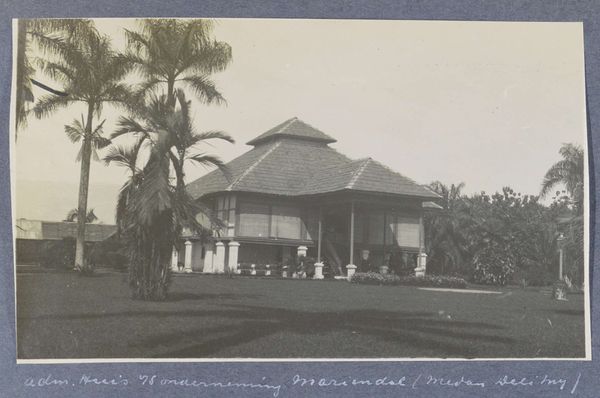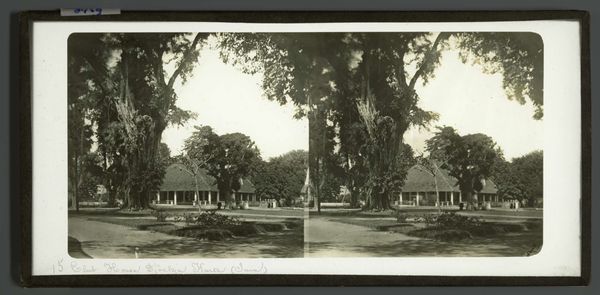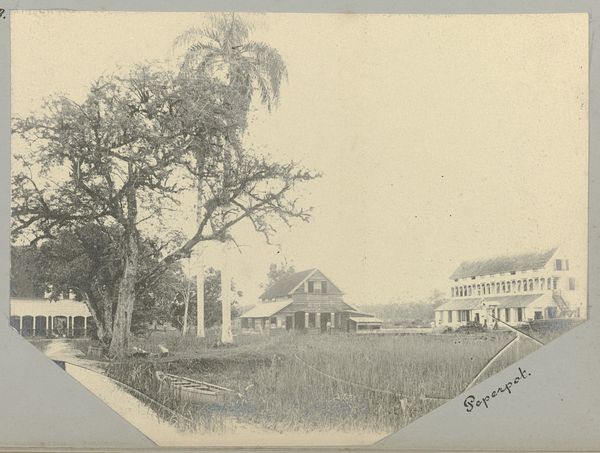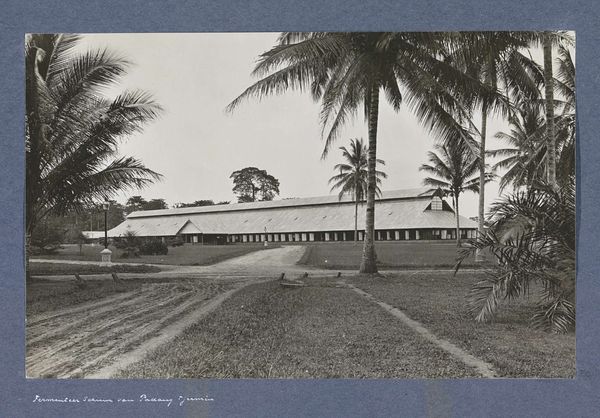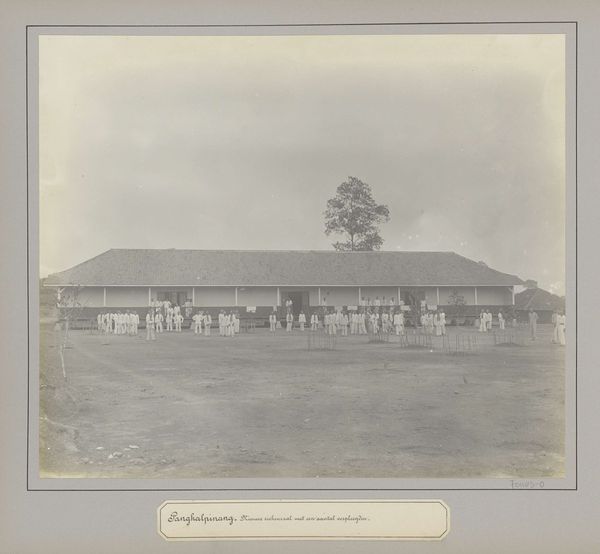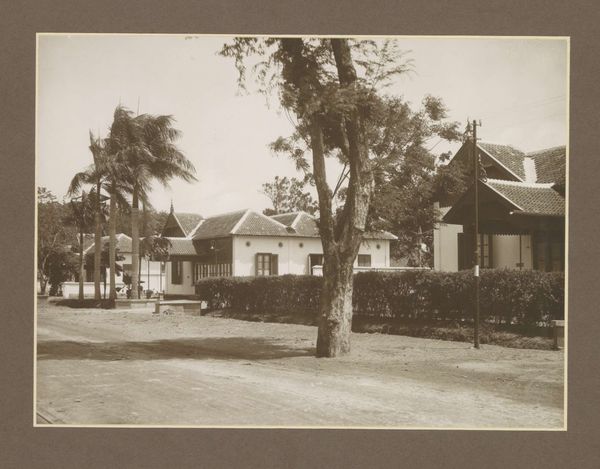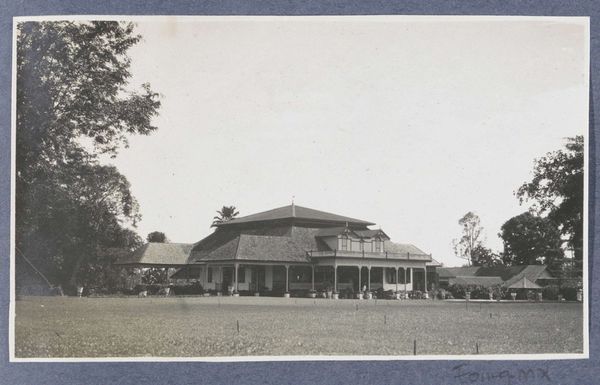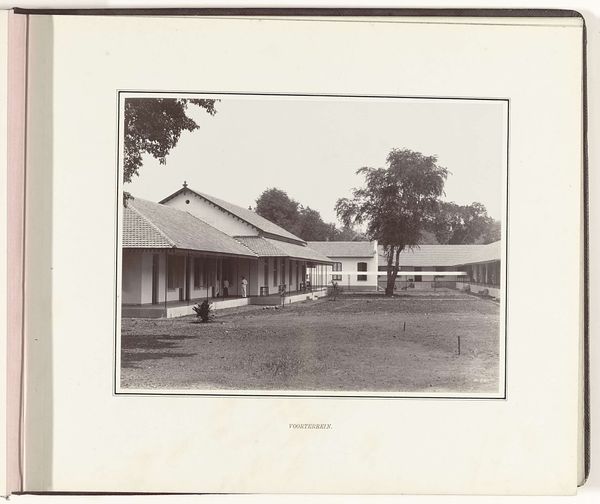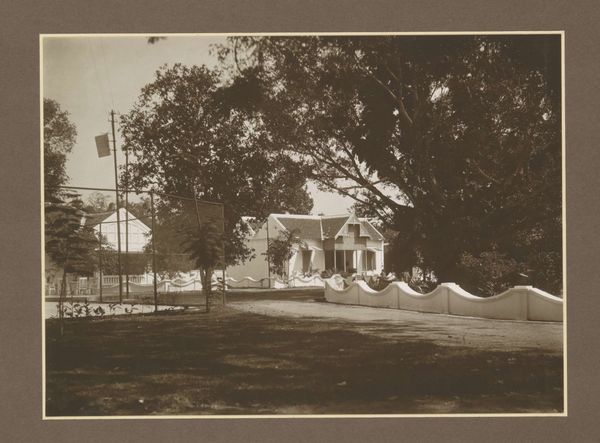
Fermenteerschuur op het Medan Estate van de Deli Maatschappij op Sumatra c. 1900 - 1920
0:00
0:00
photography
#
landscape
#
photography
Dimensions: height 76 mm, width 137 mm
Copyright: Rijks Museum: Open Domain
Curator: The Rijksmuseum holds this striking photograph titled "Fermenteerschuur op het Medan Estate van de Deli Maatschappij op Sumatra," which translates to "Fermentation Barn on the Medan Estate of the Deli Company in Sumatra." It's believed to date from between 1900 and 1920. Editor: It has a slightly haunting feel, doesn’t it? The long, low building dominating the left side, those almost mournful trees on the right...a palpable air of solemnity. Curator: That's a powerful initial response. The photograph captures a colonial landscape, specifically detailing an aspect of tobacco production. It is essential to understand that the Dutch Deli Company held immense power in Sumatra, essentially operating as a state within a state and often at the expense of indigenous populations and indentured labourers. Editor: The barn itself becomes a symbol, then. It looms large. Is it intentionally dwarfing the human figure walking alongside it? Is the human, dwarfed in scale, emblematic of labor, of subordination? Curator: Exactly. And what's especially interesting here is how the photographer chooses to depict this place of production. The visual symbols, like the repetitive windows on the barn, reinforce notions of mass production and exploitation but in an orderly manner. The landscape tradition can often aestheticize the underlying injustice inherent in such scenes. Editor: Right, it presents this rather sinister operation as visually harmonious, almost tranquil. Those palm trees are beautiful but now feel like elegant decorations on a brutal history. Perhaps a visual symbol for imposed tropical paradise on a plantation fed by forced labor. Curator: It's a chilling contrast. That aestheticization can blind the viewer from comprehending the difficult labor practices within. The Deli Company had imported predominantly Chinese and Javanese workers with unfair conditions; resistance from such labor brought repercussions like penal sanction, deportation, and worse. This photograph almost airbrushes this part out. Editor: So even a seemingly straightforward image is really dense with embedded, and arguably misleading, symbolic intent. By erasing or at least obscuring the reality of the place, we need to critically examine this representation of power. Thank you, that gives us much to think about. Curator: Absolutely. A deeper analysis makes apparent how photography too can mask histories through careful symbolic arrangements.
Comments
No comments
Be the first to comment and join the conversation on the ultimate creative platform.
